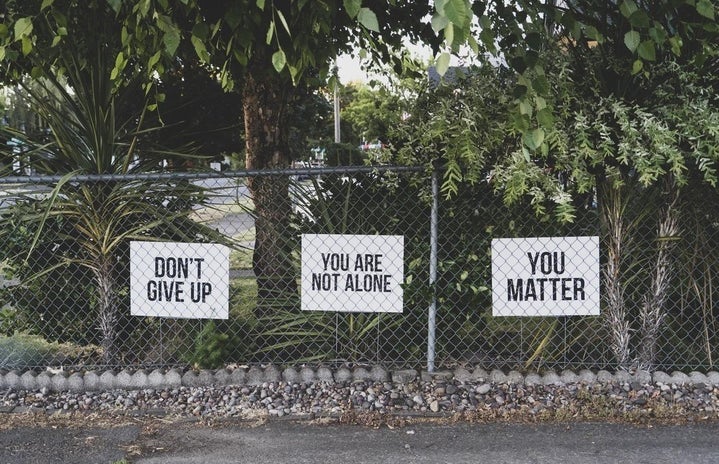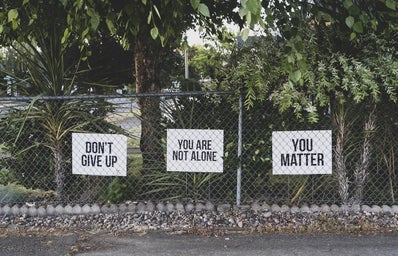By Allison Milian
To wrap up Suicide Prevention Awareness Month, commemorated in September, lets discuss the importance of suicide prevention and what we can do to continue to raise awareness.
Every September, mental health advocates, organizations, and community members unify to raise awareness and destigmatize suicide. According to the World Health Organization (WHO), almost 800,000 people worldwide are lost to suicide every year. Like any other medical condition, suicide can affect anyone regardless of their age, gender, or childhood history. However, although many people experience depression, suicidal ideation, and suicidal tendencies, these symptoms should not be considered normal under any circumstance. They are, in fact, serious health issues that should be treated as soon as possible.
In spite of this, suicide continues to have an overwhelming amount of societal stigma. In many cases, this subject is considered to be taboo, especially within the Latinx community. Lots of countries fail to acknowledge suicide as a public health concern, leaving their citizens unaware of the potential risks of the symptoms, and the resources necessary to prevent and treat this behavior.
Additionally, the stigma restricts people from seeking the proper help because they fear being seen as “weak”or “lazy”. In reality, this is profoundly untrue. Oftentimes, suicidal thoughts arise from a deeper and, typically untreated, mental illness.
It is because of this that we must engage in an open and honest conversation about suicide, making the correct information accessible whilst encouraging those who suffer from this to speak out honestly about what they are going through. Speaking out does not make a person weak or “less than”. On the contrary, it is one of the bravest things someone can do.
We mustn’t be afraid to ask questions. Mental health is a broad, complicated topic, and it can be very confusing to navigate. Nonetheless, with the right guidance and support, doing so can become easier. Plus, if we become socially conscious, we could be more prepared to confront this.
For more information from informed medical professionals, here are some websites you could check out:
- https://thedepressionproject.com/
- https://suicidepreventionlifeline.org/
- https://afsp.org/
- https://en.sanjuancapestrano.com/disorders/suicidal/
- https://lineapas.assmca.pr.gov/
Look up these Instagram accounts that share mental health advice and information:
- @realdepressionproject
- @mental.recharge
- @psicosaludtenerife
- @afspnational
- @selfcareisforeveryone
Suicide Hotlines:
- Linea PAS 1-800-981-0023
- Suicide Prevention Lifeline- Red National (TALK) 1-800-628-9454
- 911
A list of free mental health services in Puerto Rico:
- Escape 787-264-6161 or 787-287-6161
- Proyecto Patria 787-766-5000
- Centro Comunitario LGBTT 787-294-9850
- Centro de Apoyo Para Victimas de Crimen 787-763-3667
- Casa Protegida Julia de Burgos (for victims of domestic violence) 787-723-350
If you or someone you know is struggling with depression or suicidal thoughts, please seek help. I know it seems like this pain or hopelessness will last forever, but I assure you it will not. It’s important to not make permanent decisions based on temporary feelings. It will get better and things will be okay. You are not a burden and you have so much value.

